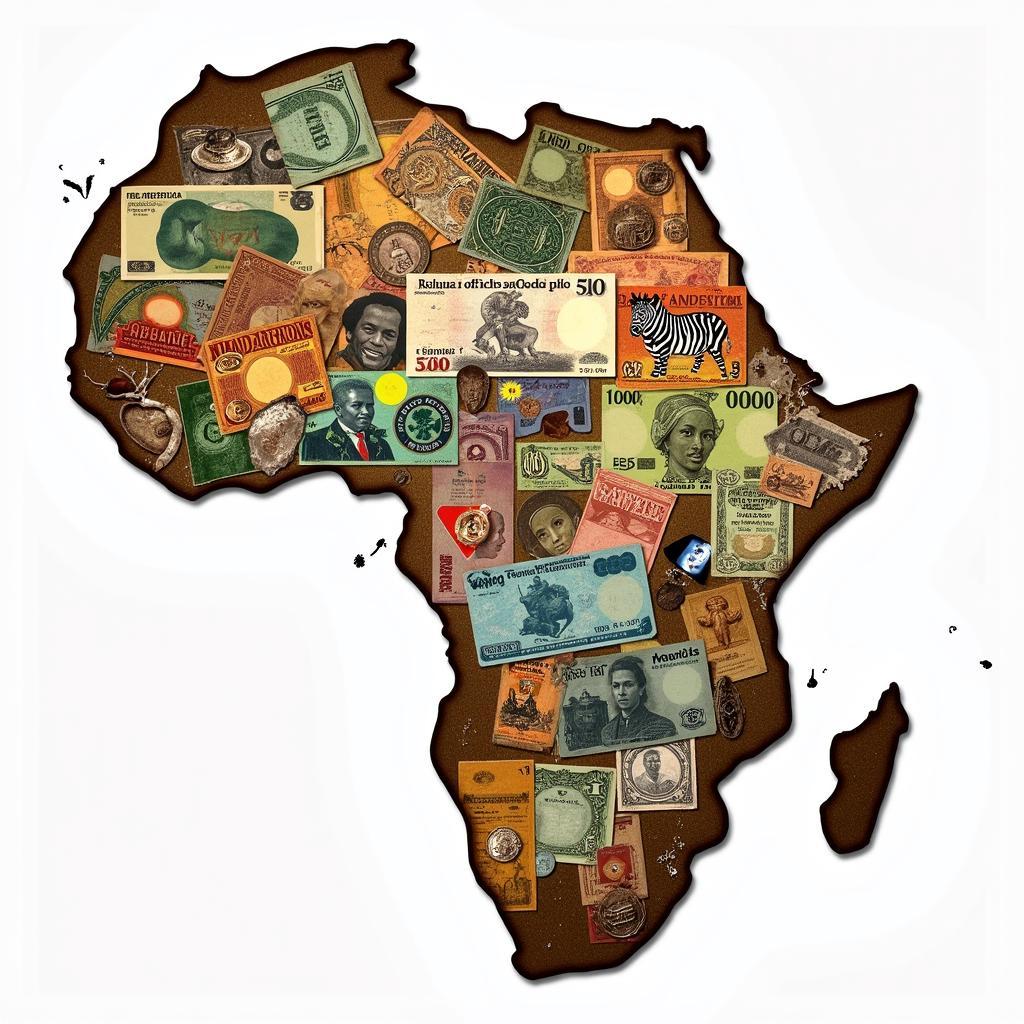African Countries That Changed Their Currency After Independence
Many African countries opted to change their currency after gaining independence, a move signifying a break from colonial ties and an assertion of national identity. This transition wasn’t merely symbolic; it had significant economic and political implications for these newly sovereign nations.
The Drive for Monetary Sovereignty: Why Change Currencies?
After decades, and in some cases centuries, under colonial rule, African nations sought to establish their own economic systems. Changing currency was a crucial step in this process. It allowed these countries to control their monetary policy, manage their exchange rates, and build their own financial institutions. The old currencies, often tied to the former colonial powers, were seen as symbols of subjugation and economic dependence.
Breaking the Colonial Chains
The switch to new currencies was a powerful statement of self-determination. It represented a clean break from the past and a bold step towards economic independence. For many nations, the new currency became a potent symbol of national pride and sovereignty.
 African Nations Changing Currency
African Nations Changing Currency
Economic Control and Stability
Having control over their own monetary policy allowed African nations to tailor their financial strategies to their specific needs. They could manage inflation, control interest rates, and influence exchange rates to stimulate economic growth and development. This was vital for nations emerging from colonial rule and striving to build strong, independent economies.
Building National Financial Institutions
The introduction of new currencies often necessitated the establishment of new central banks and other financial institutions. These institutions played a key role in managing the new monetary systems, regulating the banking sector, and promoting financial stability.
 New Central Banks in Africa
New Central Banks in Africa
Examples of African Countries and Their Currency Transitions
Numerous African countries embarked on currency transitions after independence. Here are a few examples:
- Ghana: Transitioned from the British West African pound to the Ghanaian cedi in 1958.
- Nigeria: Replaced the British West African pound with the Nigerian pound in 1959, and later adopted the naira in 1973.
- Kenya: Moved from the East African shilling to the Kenyan shilling in 1966.
- Algeria: Transitioned from the Algerian franc, tied to the French franc, to the Algerian dinar in 1964.
The Challenges of Currency Change
While the transition to new currencies held great promise, it also presented numerous challenges. Establishing new monetary systems, managing exchange rates, and building the necessary financial infrastructure required significant expertise and resources. Some countries also faced issues with inflation and currency devaluation in the initial years after the change.
The Long-Term Impact of Currency Change
Despite the initial challenges, the decision to change currencies has generally been viewed as a positive step for many African nations. It has allowed them to establish their economic sovereignty, build their own financial institutions, and pursue independent monetary policies tailored to their specific needs.
Conclusion
The decision by many African countries to change their currency after independence was a pivotal moment in their economic and political history. It symbolized a break from colonial ties and a commitment to building independent, self-reliant economies. While the transition presented challenges, it ultimately paved the way for greater economic control and facilitated the development of national financial institutions. These changes represent a key aspect of the post-colonial journey for many African nations, marking their determination to shape their own economic destinies.
FAQ
- Why did so many African countries change their currencies after independence? To assert their national identity and gain control over their monetary policy.
- What were some of the challenges associated with currency transitions? Establishing new monetary systems, managing exchange rates, and building financial infrastructure.
- What were the long-term benefits of these changes? Greater economic control and the development of national financial institutions.
- Did all African countries change their currency post-independence? No, not all countries changed their currencies.
- What role did currency change play in the broader context of decolonization? It was a key element in asserting economic independence and breaking from colonial ties.
- Were there any negative economic consequences of currency transitions? Some countries faced challenges with inflation and currency devaluation in the initial years.
- How did currency changes contribute to the development of national identity? New currencies became symbols of national pride and sovereignty.
For further assistance, please contact us at Phone Number: +255768904061, Email: [email protected] or visit our office at Mbarali DC Mawindi, Kangaga, Tanzania. We have a 24/7 customer service team available. You can also find more related articles on our website.
